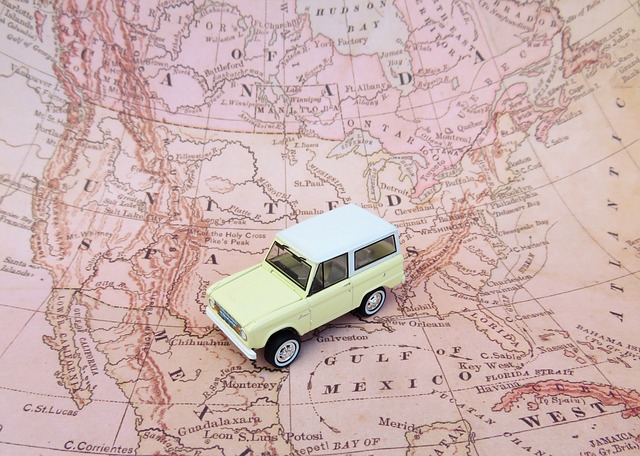So, you’re ready to take the plunge and plan your first international trip. Congratulations! Exploring a new country, experiencing different cultures, and stepping outside your comfort zone is one of life’s most rewarding experiences. But planning an international journey can also feel a bit overwhelming, especially if you’re not sure where to start. Don’t worry — this guide will walk you through the essentials, from choosing a destination to ensuring you have everything packed and ready for an adventure.
1. Choose Your Destination Wisely
The first step is to decide where you want to go. If you’re wondering how to travel abroad for the first time, keep it simple. Start with a destination that matches your comfort level. For instance, if language barriers make you nervous, consider countries where you speak or understand the language, like the UK or Canada for English speakers. Similarly, if budget is a concern, research places that fit your financial situation. Southeast Asia, for example, is known for being a popular and affordable region for first-time international travelers.
Think about the type of experience you want, too. Do you want to dive into rich history, relax on tropical beaches, or explore vibrant cityscapes? Picking the right destination can shape your entire trip, so take your time researching.
2. Create a Realistic Budget
After choosing your destination, it’s time to create a budget. Your budget should cover airfare, accommodations, food, transportation, and activities. It’s easy to get swept up in the excitement, but be mindful of your expenses so you don’t run out of money halfway through your journey. When you start looking at flights, accommodations, and activities, use comparison websites to get an idea of costs and look out for deals.
A good rule of thumb is to budget a little extra for unexpected expenses. This buffer can be especially useful if you end up needing extra cash for transportation or meals. Also, don’t forget to check if your bank charges extra fees for international transactions.


3. Book Your Flights and Accommodation in Advance
Once you have your budget sorted, it’s time to book your flights and accommodations. Booking in advance often gives you access to better rates and more options. Use reliable websites and apps to compare flight prices and check different dates for the cheapest deals. If you’re flexible with your schedule, mid-week flights are often cheaper than weekend ones.
As for accommodations, start by deciding what type of lodging fits your style and budget. Are you more comfortable in hotels, hostels, or vacation rentals? Each has its pros and cons. Hostels are great for meeting other travelers, while hotels offer more privacy. Whichever you choose, try to book accommodations that are central and close to major sights to save on transportation costs.
4. Make Sure Your Travel Documents Are Ready
Your passport is the most important document when it comes to international travel, so make sure it’s up to date. Many countries require your passport to be valid for at least six months after your arrival, so check the expiration date well in advance. Additionally, some countries require visas, which may take time to process. Check your destination’s visa requirements and apply early if needed.
It’s also a good idea to make photocopies of your passport and other important documents, like your itinerary, accommodation details, and emergency contacts. Keep one set of copies with you and leave another set with someone you trust back home, just in case.
5. Pack Smart: Essentials for Your International Trip
Now, onto the fun part: packing! For first-time travelers, international trip packing can feel overwhelming. The key is to focus on packing smart and light. Start with a list of international travel essentials, including your passport, travel documents, chargers, toiletries, and medications. A comfortable pair of walking shoes, adaptable clothing, and a small first-aid kit can also come in handy.
Remember that different airlines have different luggage allowances, so double-check your airline’s policy before you start packing. And don’t forget the packing tips for traveling abroad: roll your clothes to save space, use packing cubes to stay organized, and pack only what you really need. Overpacking can be a hassle, especially when you’re trying to navigate airports and public transportation with heavy bags.
6. Research Local Customs and Etiquette
Every country has its own customs, traditions, and etiquette, so it’s worth doing a little research before you go. Learning a few basic phrases in the local language, like “hello,” “please,” and “thank you,” can make a big difference in how locals receive you. Also, be aware of dress codes, tipping practices, and any cultural sensitivities.
For instance, in some countries, it’s considered rude to tip, while in others, it’s almost expected. Being respectful of local norms will enhance your experience and help you connect with people on a deeper level. Plus, showing respect for a culture you’re visiting can make you feel more comfortable and welcomed.


7. Plan Your Itinerary (But Leave Room for Flexibility)
It’s a good idea to outline a rough itinerary so you can make the most of your time. Research the must-see attractions, activities, and local experiences in your chosen destination, but don’t over-plan. Leave some room for spontaneity because you might stumble upon a hidden gem or meet someone who suggests an amazing spot that wasn’t on your radar.
Start with the big sights you absolutely don’t want to miss, then add in some free time for relaxing or exploring. This approach will give you a balanced experience and prevent you from feeling rushed.
8. Get Travel Insurance
Travel insurance is essential, even if it feels like an extra expense. It can cover unexpected situations like flight cancellations, lost luggage, and medical emergencies. When traveling internationally, especially for the first time, it’s better to be prepared than to regret not having insurance if something goes wrong. Many insurance plans are quite affordable and offer peace of mind, which is priceless when you’re navigating a new country.
Planning your first international adventure may seem daunting, but with some preparation, it can be a smooth and enjoyable process. By following this guide, you’ll be well-equipped with everything you need to know about how to travel abroad for the first time. From organizing your budget to packing the essentials and learning about local customs, these steps will help ensure your trip goes off without a hitch. So, get ready to explore new horizons, embrace different cultures, and make memories that will last a lifetime. Safe travels!
